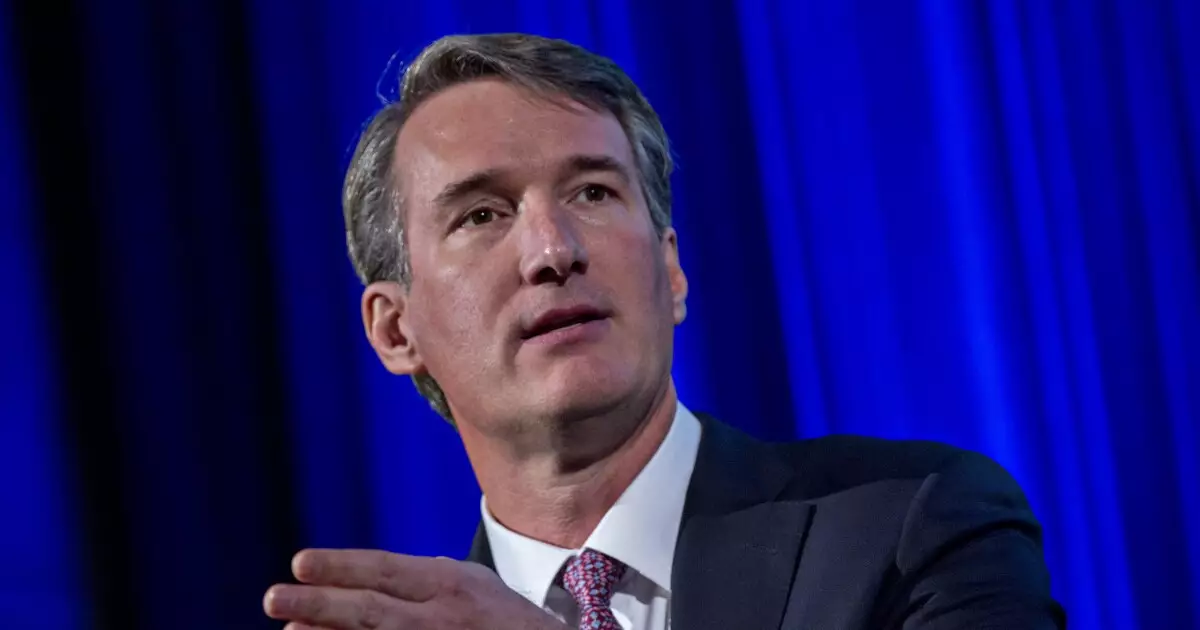Virginia’s Tax Rebate Initiative: An Analysis of Politics and Fiscal Responsibility

Virginia’s political landscape is witnessing a significant legislative movement, as state lawmakers are embarking on plans to return a surplus of taxpayer dollars. In a bold step away from Governor Glenn Youngkin’s budget proposals, the Democrat-controlled General Assembly has taken the initiative to endorse a billion-dollar tax rebate for Virginians. The proposed rollout of $200 for individuals and $400 for couples encapsulates a broader trend across various states that find themselves in similar fiscal positions. This article delves into the implications, motivations, and potential outcomes of these legislative maneuvers.
The proposal for tax rebates arises in the context of Virginia’s impressive budget surplus—a situation that has prompted discussions around not just fiscal prudence but also political survival. Governor Youngkin, who appears to be eyeing a larger role on the national stage, proposes distributing rebates via adjustments to existing personal property taxes on automobiles. This approach, while innovative, invites scrutiny regarding its long-term efficacy. Critics argue that relying on property taxes raises a question about equitable distribution, especially for those less reliant on automobiles.
The bills currently in circulation also propose an expansion of the standard state income tax deduction, which potentially signals a broader move towards tax relief. Yet the approval of these measures has not come without friction. Youngkin’s previous legislative encounters reveal a history of discord with the General Assembly, a reality that complicates the budgetary process. While bipartisan agreement on rebates may appear smooth on the surface, underlying tensions suggest significant negotiations lie ahead.
The tug of war between Gov. Youngkin and the General Assembly shines a light on the broader political dynamics within Virginia. Youngkin’s past clashes with lawmakers, notably his unsuccessful attempt to create a new sports arena, highlight the challenges of governance when partisan lines are so starkly drawn. His current proposal, while popular among the electorate, faces challenges in translating into actionable policy.
Senate Minority Leader Ryan McDougle articulated the desire to ensure that the surplus benefits Virginians. His perspective underscores an essential aspect of political strategy—maximizing voter satisfaction while balancing fiscal responsibility. Nonetheless, the path to accomplish such objectives is riddled with potential pitfalls. If negotiations falter, the state will inevitably revert to the existing budget, stunting the intended benefits of the surplus distribution.
Virginia’s decision to refund surplus tax revenue mirrors a national trend amongst states grappling with excess funds. Tax policy experts view this propensity with caution, pondering the long-term ramifications of such initiatives. While immediate taxpayer relief is politically advantageous, it raises questions about the sustainability of state budgets and the looming specter of economic downturns.
According to the National Association for State Budget Officers, fiscal responsibility must not be forsaken for short-term political gains. A $295 million infusion into Virginia’s reserve fund, as suggested in Youngkin’s proposed budget amendments, is a commendable move towards financial stability and growth. This cautious approach contrasts sharply with the potentially reckless distribution of one-time rebates, illustrating the complexity of governance amid financial windfalls.
The recent AAA rating granted to Virginia by Fitch Ratings for its general obligation bonds signals a robust economic standing, providing the commonwealth with solid ground to navigate fiscal strategies. The rating reflects disciplined financial management and the ability to adapt to economic shifts, essential qualities for effective policy-making in turbulent political times.
Virginia’s strong economic profile offers a promising foundation for future growth but necessitates careful handling of surplus funds. As negotiations continue leading up to the budget deadline, it will be critical for lawmakers to find a balance between immediate tax relief and prudent saving measures that ensure long-term economic health.
Virginia’s current tussle over tax rebates encapsulates the intersection of fiscal responsibility, governmental strategy, and voter expectations. As the legislature deliberates the best course of action, stakeholders must prioritize sustainable economic practices while responding to the pressing needs of Virginians. The outcome of this legislative session could very well set the tone for the state’s economic trajectory in the years to come.





